Dr Rebecca Wyten
Surgery to remove breast implants can be performed with or without replacement of implants. Breast implants are generally recommended to be replaced after 10 years. Some women may prefer to have their implants removed and not replaced.
This operation is performed under general anaesthesia. A nerve block (PECS II block) using local anaesthetic medication is also performed by your Specialist Anaesthetist before the operation starts to provide additional pain relief both during and after your operation.
Dr Wyten’s technique for this surgery involves a small incision under the breast to access the breast implant. The implant is then removed, as well as the surrounding capsular tissue that forms around the implant over time, if required. In situations where a breast implant has ruptured, all implant contents are removed from the breast. Some women may prefer to have new implants inserted, and some may prefer to have no implants. Additional procedures such as mastopexy surgery to adjust the breast tissue may also be performed in conjunction with breast implant removal surgery.
This procedure typically takes approximately 2 hours to perform in the operating theatre, and an overnight stay in hospital may be required.
Breast implant removal and replacement may be performed for a variety of reasons:
Some women may prefer to have their breast implants removed and have no replacement of implants. Some reasons for this may include:
It is important to have realistic expectations about what can be achieved with this surgery, and to consider your natural breast size and shape.
It is also important to be in good physical and mental health, and be a non-smoker to reduce your risk of complications during and after surgery.
Recovery from this procedure is guided by whether breast implants are replaced, and if any additional procedures are also performed, such as mastopexy surgery. It is important to follow the instructions given during your recovery, including when you can resume driving and exercise. It may be necessary to get additional support for childcare, pet care, and other activities around the home during your recovery as you will be unable to do any lifting.
It is typical to have some discomfort after breast implant removal surgery. You will be given instructions after your surgery on how to manage this in the first couple of weeks after surgery. You will also need to wear supportive undergarments and Dr Wyten’s preferred supportive post-surgical bras will be provided after your surgery. You may wish to purchase some additional post-surgical bras for your recovery.
All surgery has risks, including the risks of scarring, bleeding and blood clots (deep vein thromboses and pulmonary emboli), and infection. There are also risks associated with a general anaesthetic.
Risks specific to this surgery will be discussed with you by Dr Wyten during your consultation. Written information will also be provided for you to read before you proceed with surgery. Some risks associated with this procedure include:
If you experience any unusual pain, swelling or bleeding after surgery, please seek help immediately.
Choosing an experienced Specialist Plastic Surgeon, such as Dr Wyten, is the safest option when considering this type of surgery.
These before and after photographs are of patients of Dr Rebecca Wyten who have given consent for the sharing of their photos.
Individual results may vary, and your outcomes may be different to these photos.
8 months since surgery
260cc Smooth Saline replaced with 275cc Round Silksurface
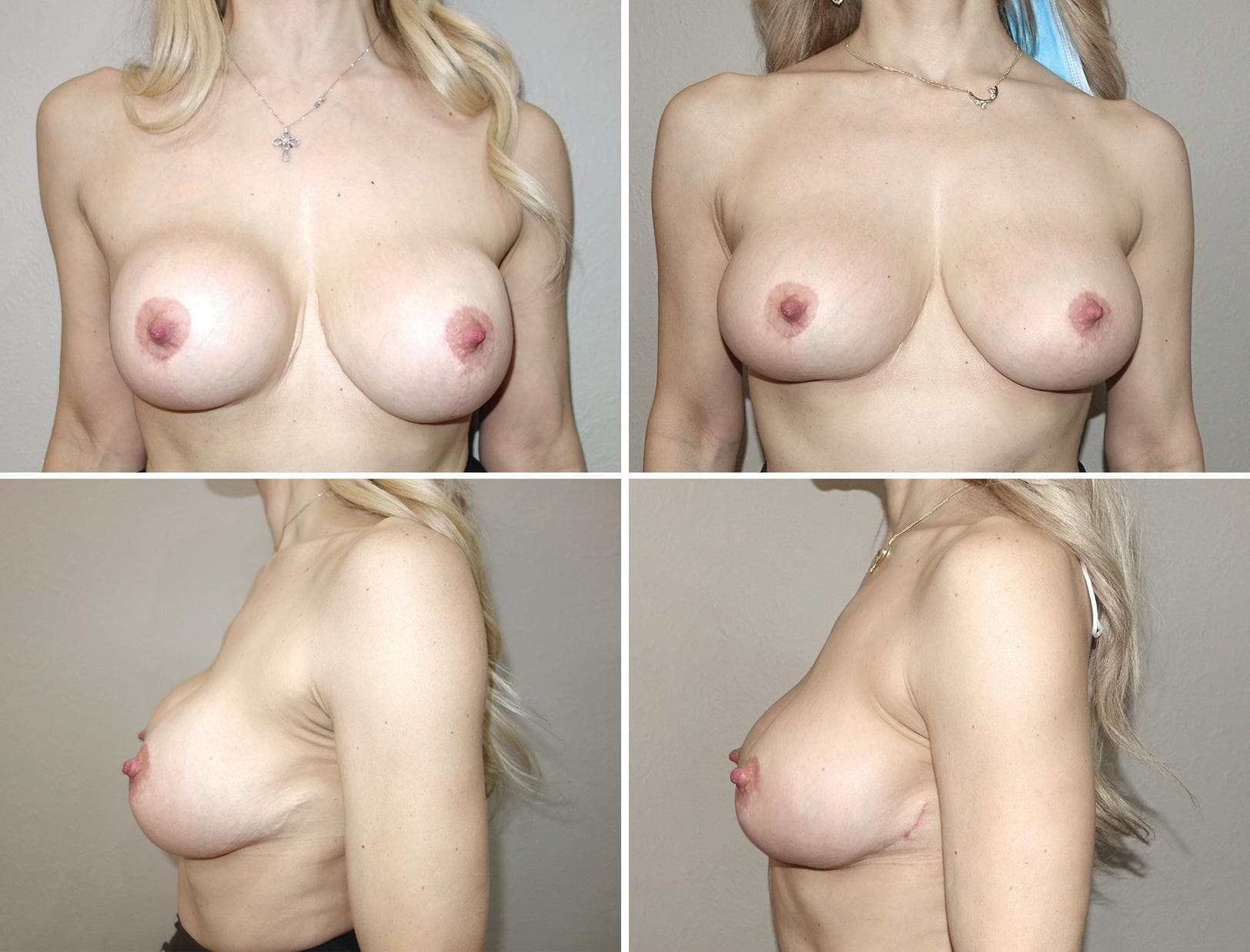
12 months since surgery
Ruptured R275cc Saline replaced with 300cc Gel
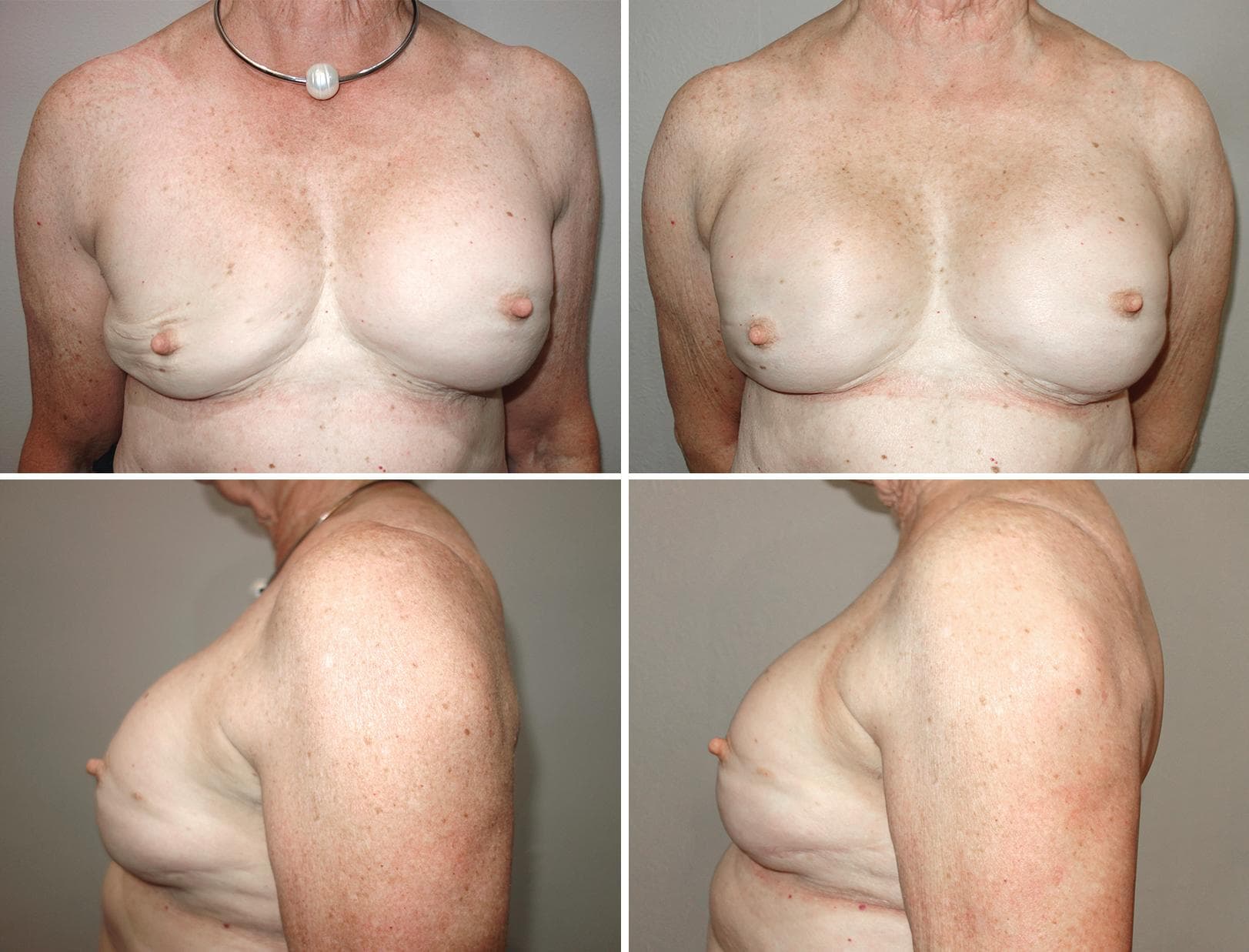
3 months since surgery
320cc replaced with 335cc Gel
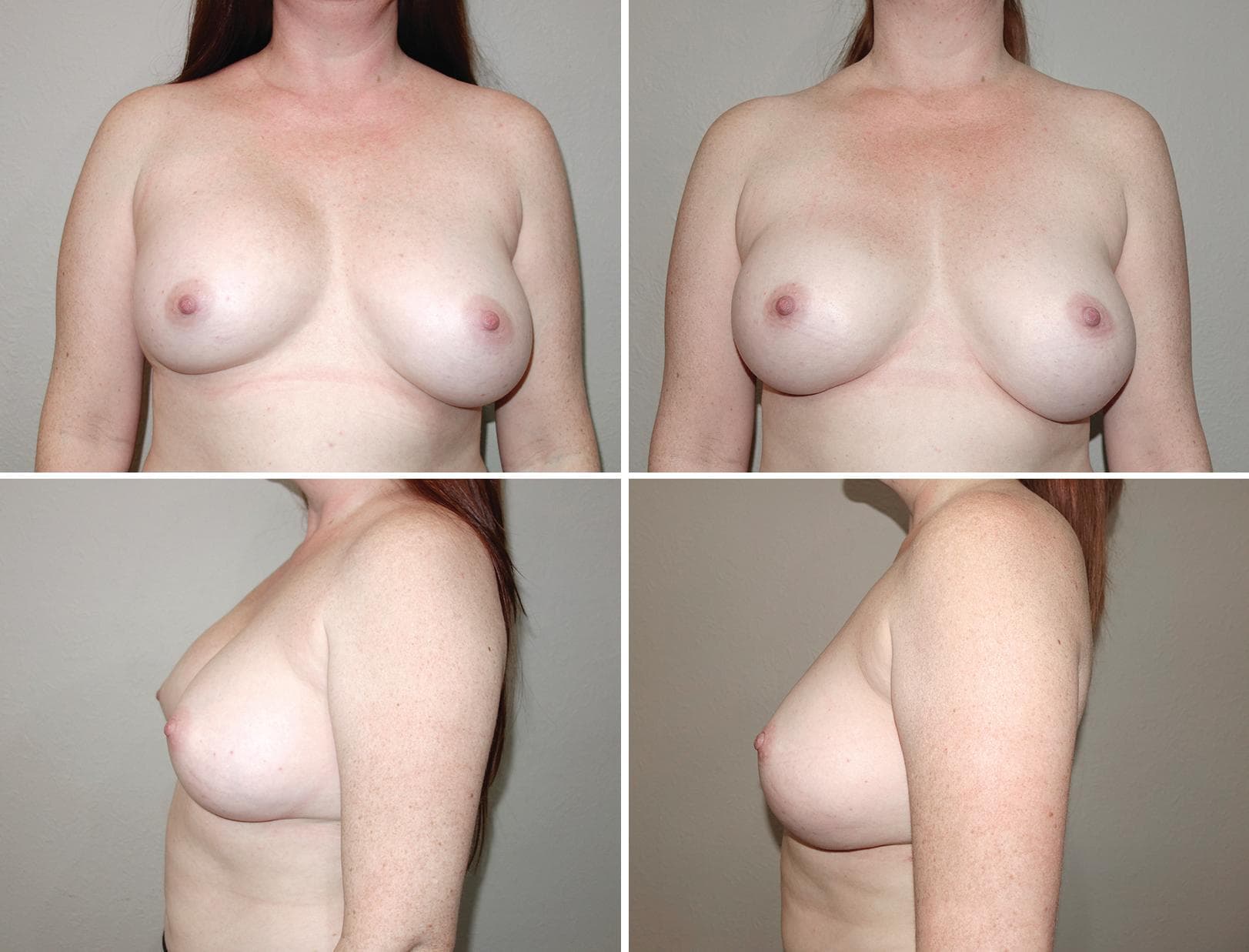
12 months since surgery
360cc Textured replaced with 335cc SilkSurface Round Gel
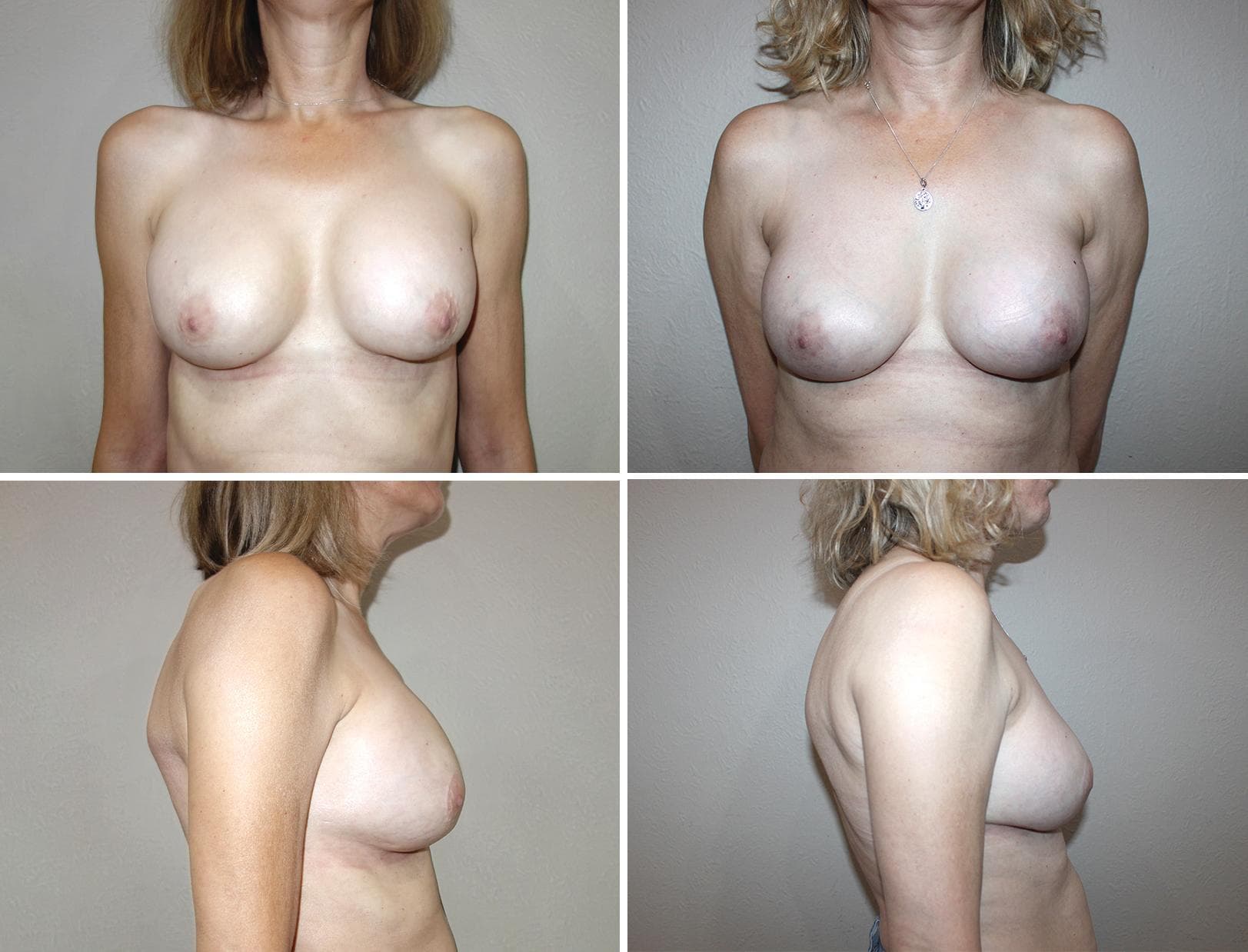
1 month since surgery
400cc High Profile to 350cc High Profile
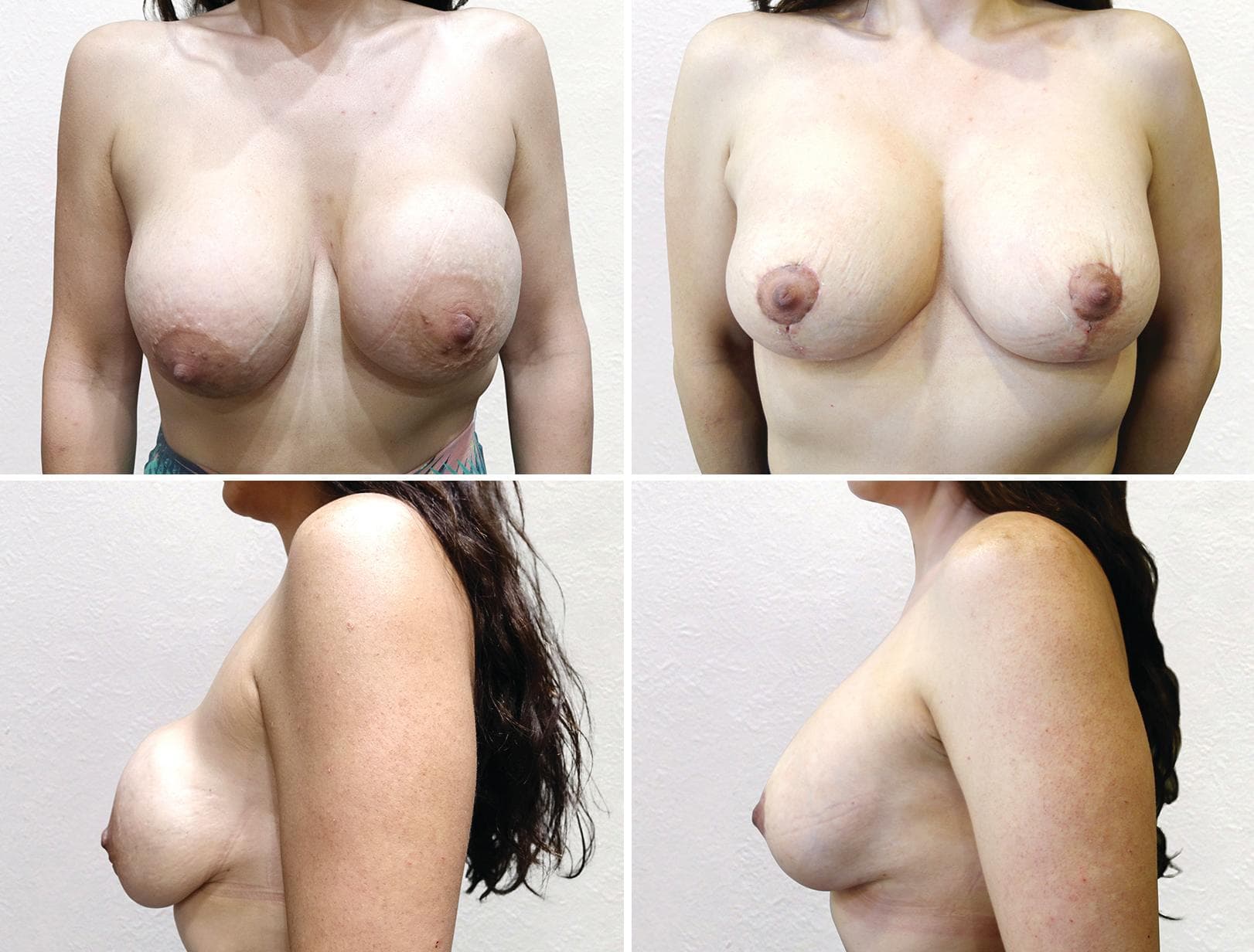
12 months post surgery
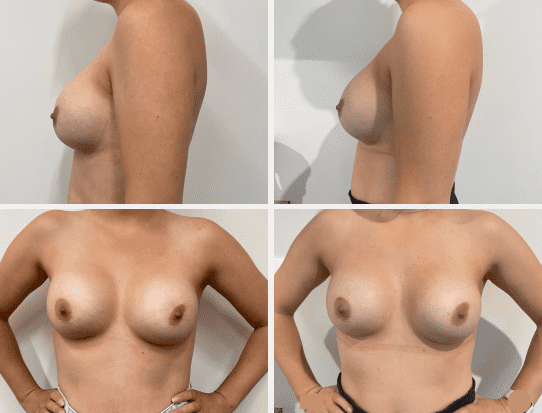
7 months post surgery
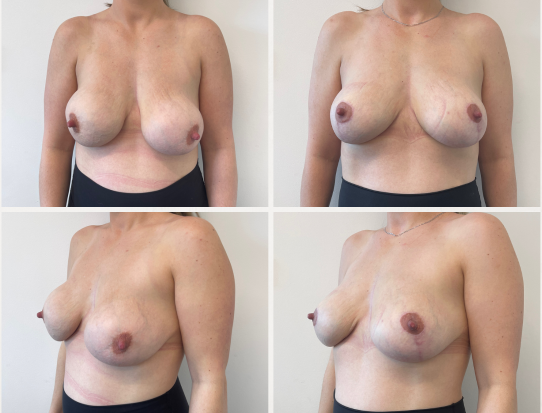
12 months post surgery
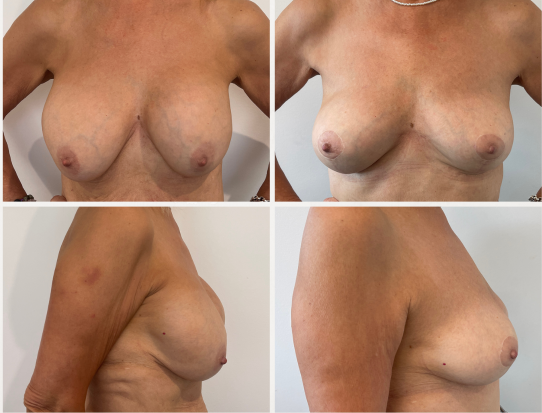
12 months post surgery
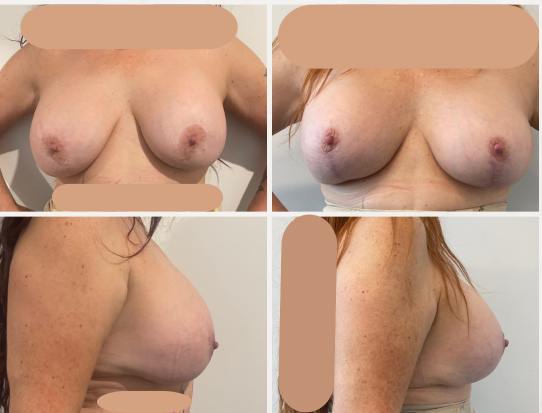
12 months post surgery
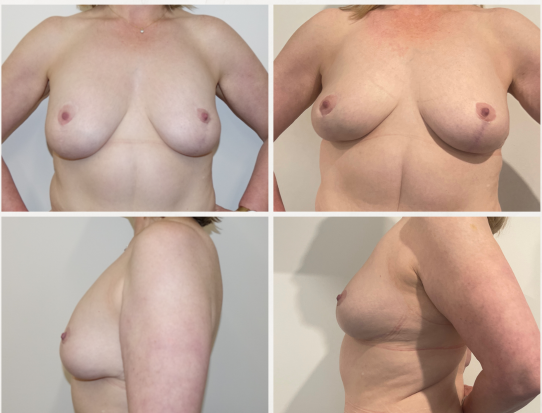
9 months post surgery
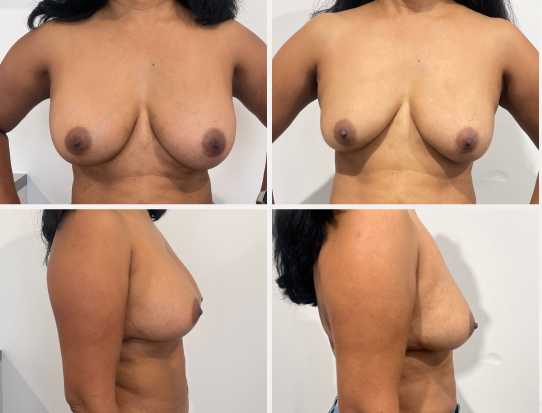
12 months post surgery
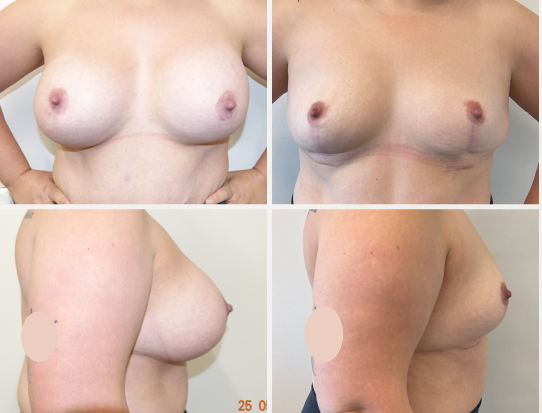
Q. Can I breastfeed after breast implant surgery?
Breast implant surgery may affect your ability to breastfeed. Certain techniques can reduce the risk of not being able to breastfeed after this surgery but are not guaranteed.
Q. How long do breast implants last for?
It is generally recommended that breast implants are changed after 10 years.